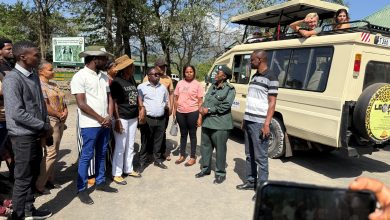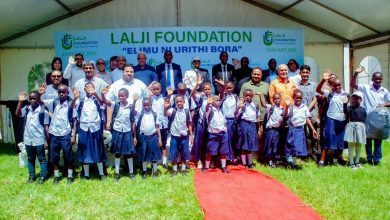Women in Nuclear: A new development vector for Tanzania

DAR ES SALAAM: According to the Nuclear Energy Agency (NEA), in 2023, women accounted for only 28.8% of new nuclear sector employees. Nevertheless, the International Atomic Energy Agency (IAEA) claims that the number of female staff in the agency in professional and higher categories has increased from 30 percent to almost 46 percent since December 2019.
It suggests that despite the willingness of this prominent company to pay attention to the potential of women in the nuclear industry, there are still relatively few of them in the field as a whole. The lack of diversity may lead to a loss of innovation and growth potential and pose a challenge to the viability of the industry. This can be combated through initiatives that support women in getting an education and finding work in the field.
Success stories of trailblazer women
The advancements in the nuclear industry that we are witnessing today are largely due to women scientists and practitioners who have dedicated themselves to the study and development of the field.
It is worth mentioning the contribution of Senamile Masango, a South African nuclear scientist and innovative entrepreneur who made history as the first African woman to participate in nuclear experiments at the European Organisation for Nuclear Research (CERN). In 2020, Masango was recognised as one of the 50 inspiring women in the world. She also founded the Senamile Masango Foundation which is dedicated to promoting science education among young women in Africa.
Another example is Samira Moussa – an innovative nuclear physicist who became famous as one of the first women to make significant contributions to nuclear research in Egypt. She was also the first woman to work at Cairo University and the first woman to receive a PhD in atomic radiation. Moussa believed in the peaceful use of atomic energy and sought to make nuclear cancer treatment widely accessible and inexpensive, stating: “I will make sure that nuclear treatment is affordable and costs no more than aspirin.”
A notable figure in Tanzania’s nuclear landscape is Professor Najat Kassim Mohamed, who currently serves as the Director General of Tanzania Atomic Energy Commission (TAEC). With a background in nuclear physics and years of academic experience at the University of Dar es Salaam, she now leads the national authority responsible for regulating and promoting the peaceful use of nuclear science and technology. Her appointment reflects the increasing recognition of women’s leadership in high-level decision-making roles within the nuclear sector and highlights the value of scientific expertise in shaping the country’s nuclear future.
Dr Tausi Maftah, Head of the Department of Nuclear Medicine at Ocean Road Cancer Institute (ORCI) in Dar es Salaam, is another successful person – in Tanzania’s nuclear medicine. Dr. Maftah received her education through the Fellowship of College of Nuclear Physicians programme, implemented jointly by the Government of Tanzania and the United Nations to strengthen medical services in Africa. Under her leadership, modern technologies were introduced at ORCI, including a PET/CT scanner and a cyclotron facility for the production of radioactive materials, which significantly improved the diagnosis and treatment of cancer in the country.
Opportunities for Women in Nuclear
Various initiatives in Africa are helping to increase the representation of women in the industry. One of the notable initiatives is “[In]visible Force”, managed by Rosatom. This large-scale leadership training programme is designed for female managers in the industry and the corporate sector and is aimed at improving their leadership skills and career growth. In addition to internal programmes, Rosatom cooperates with leading technical universities, offering scholarships and grants to students studying in nuclear technology-related fields. This support helps to attract young talents and strengthen the human resources potential of the industry.
Another notable opportunity is the Marie Sklodowska-Curie Scholarship Programme. This global project, launched by IAEA, provides women with financial support to pursue a master’s degree in nuclear technology, safety, and sustainable development. In addition to the scholarship, participants receive internship opportunities in leading nuclear industry organisations. The programme has been attended by about 40 female students from 17 countries in four years.
An initiative aimed at representing women in the nuclear industry also exists in Tanzania. There is a branch of the organisation Women in Nuclear in the country. Women in Nuclear is an international network of more than 35,000 women from 150 countries working in the nuclear and radiation technology fields. Founded in 1993, WiN actively promotes gender equality, provides scholarships, leadership training, and mentoring programmes. The organisation cooperates with the IAEA, World Nuclear University (WNU) and the Atomic Innovation Forum, developing initiatives to involve women in STEM and ensure their professional growth. On January 15 of this year, a teleconference was held between the Women’s Community of Rosatom and the Tanzanian branch of Women in Nuclear, aimed at sharing experiences and discussing joint projects.
“Empowering women in the nuclear industry is not just about equality—it’s about unlocking the full potential of our nation’s brightest minds. In Tanzania, as we embrace nuclear technology for sustainable development, the role of women in science and leadership is more critical than ever. Initiatives that support and mentor women in this field are not just investments in individuals; they are investments in the future of our country, ensuring innovation, diversity, and progress for generations to come”, notes Professor Najat Mohammed, Director General of Tanzania Atomic Energy Commission.
Women play a key role in the development of Tanzania’s nuclear industry, contributing to technological progress and economic growth of the country. Despite the historically low level of female participation in science and engineering, the situation is changing thanks to the expansion of STEM education, international programmes and initiatives. The successful examples of African women prove that their increasing participation promotes innovation and sustainable development in the industry. Supporting women’s potential in this field will help Tanzania strengthen its position in nuclear science and create new opportunities for future generations.





